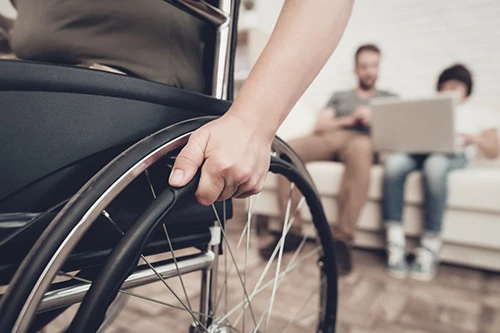Boating is often considered to be one of the more popular pastimes in Florida. In fact, Florida is home to 931,450 registered vessels as of 2016 (Florida Today).
And where there is boating, there are injuries. Boating is known to be generally safe, but accidents can and do happen. In 2017, 766 boating accidents occurred in Florida (Florida Fish and Wildlife Conservation Commission), 52 more accidents compared to 2016. 261 of those accidents resulted from collisions, with 38 percent of them due to inattention.
If you are a victim of a boating accident, you should file for compensation, but only if you can determine another person or entity if at fault for causing the accident.
Causes of Boating Accidents
Several types of issues can lead to boating accidents, including but not limited to:
The operator’s inattention or negligence. The driver of the boat may be heavily inattentive of their surroundings. One common boating distraction is texting – yes, texting and boating are just as big of a problem as texting and driving – or using various other devices.
Recklessness and speeding. Recklessness and speeding are two factors that can lead to boating accidents. Recklessness examples include weaving in congested waterway traffic, speeding to gloat or show off, overcrowding your boat, riding in dangerous weather conditions or in “no boating” areas, and allowing passengers to sit or stand on unsafe parts of the boat.
Alcohol and drugs. Boating under the influence of drugs or alcohol is not only incredibly dangerous but also deadly. According to the U.S. Coast Guard, about half of all boating fatalities involve alcohol (Boat-ed.com). In Florida, the BAC limit is just 0.08 percent, or roughly four to five drinks (discounting additional factors). Failure to keep your BAC level below that legal limit may lead to large fines, jail time, and even potential felony conviction.
Vehicle failure. Vehicle failure can often lead to disastrous incidents. Boats need to be maintained and pass an inspection (a law enacted as of July 1, 2016).
Injuries Resulting from Boating Accidents
The following injuries can occur during a boating accident:
Traumatic Brain Injury (TBI). Traumatic brain injury is a common boating collision injury. After all, what causes the TBI is when the brain hits the inside of the skull; in other words, the skull doesn’t have to face impact of any type. Passengers and operators can also suffer from brain injuries if they meet anything at high speeds, including water.
Symptoms of TBI include: amnesia, confusion, loss of concentration, aggression, impulsivity, irritability, loneliness, blackout, dizziness, fatigue, constant headaches/migraines, blurred vision, nausea, vomiting, etc.
The symptoms can last for a short period of time, such as six months, or for the remainder of the injured person’s life.
Joint, ligament, and bone injuries. Broken bones and various related injuries can cause a lasting impact on the individual. Even if the injuries heal quickly, complications can continue throughout the victim’s life, leading to expensive medical bills, potential family care, quality of life issues, and lost wages, especially if the victim becomes disabled.
Death. Unfortunate as it is, death does occasionally result from a boating accident, with alcohol being one of the leading factors. Death can lead to emotional, financial, and psychological issues, especially if the deceased’s job was the main source of income for their family.
Spinal cord injuries. Spinal cord injuries can happen to boaters and their passengers, and when they do happen, they can have an everlasting impact. Damage to the spinal cord can lead to either temporary or permanent paralysis, potentially costing the victim their livelihood. Not only would the victim be in the hospital for lengthy periods of time, but they would also lose their ability to work (leading to financial losses), rack up high medical bills, undergo emotional and psychological distress, and lose access to many of life’s pleasures.
Who is liable?
The boat operator may be held liable for their actions depending on what occurs before the accident. For instance, if an operator with a passenger was boating at a safe speed before being struck by another operator, causing a TBI for the passenger, then the operator the passenger was rider with should not be held liable.
However, if the operator was drunk, texting, and speeding without any awareness before colliding with another boater, then it is likely that the passenger (and potentially the boater, depending on injuries sustained) can seek compensation from the operator for damages.
Furthermore, the operator can be held liable if there is a lack of emergency supplies in the boat, should an accident occur. Depending on the size, the boat should be stocked with:
- Life jackets
- First aid kits
- Whistles
- Fire extinguishers
- Extra fuel and drinking water
- VHF radio
- Visual distress signals
- Ventilation
- Tool kit
- Sunscreen
- Oars or paddles
Practice safety, above all else!
Boating is an extremely popular, recreational activity in Florida that is fun but dangerous if not all warnings are heeded. Please keep safe in the waters and maintain 360-degree awareness. Disregarding such rules and common sense could lead to disastrous injuries that you could be held liable for. If you happen to be a victim of a boating accident, please keep in mind that you can hold the boater responsible for your injuries and demand compensation in the form of medical bills, emotional damages, lost wages, and more.

